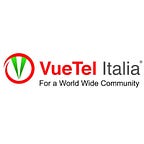The future of agriculture is “smart”
From the soil analysis to the climatic data analysis, from the quality control to the distribution optimization: the Internet of Things is going to disrupt the world of agriculture and of breeding.
The “smart agriculture” aims to feed the Earth. Our planet, in the future, will be more and more hungry. According to FAO, in fact, the world population will reach 9.6 billion by 2050 and agricultural production, in order to face the greater demand for food, will be increased by 70%. It is a difficult objective but not impossible. Experts think that the “smart agriculture” will help the path, that is the application of new technologies (mainly those related to the Internet of Things, to agriculture and breeding). It is an unlikely combination but that in many cases it is already a reality, and which will be widely discussed in Milan, on the occasion of Expo 2015. GPS services, sensors, analysis of big data, robotics: the IoT offers a lot of opportunities to farmers at all stages of their work, from seeding to monitoring, from harvest to distribution. These instruments can help to make agriculture more efficient, sustainable and high-quality, as also explained a research published recently by “Observatory Internet of Things” from the “School of Management” of the School of Engineering in Milan.
“The Smart Agriculture allows reducing by 30–40% the use of water resources and by 40% the number of plant-protection treatments”, said Angela Tumino, one of those responsible for the research.
The ICT disrupts agriculture. From a practical point of view, the technological applications in the agricultural field can be numerous. In fact, the data-collection and data analysis systems play a key role. The good management of large database can, in fact, strengthen all activities related to real-time monitoring of crops, to climate studies and to distribution optimization. Very important are also the repercussions in terms of quality control, with the new technologies that can support operators in the farming sector both at the stage prior to the start of cultivation, by improving the evaluation techniques of soils and health of livestock, and at the next stage, by allowing a detailed monitoring of the distribution chain up to the consumer.
Theoretically, benefits are clear, as it is shown by the first experiences of “smart agriculture”. In order to allow a more important development, two barriers need to be brought down: costs, which are still too high, and the cultural one, leading many farmers to be suspicious of the digital revolution.
